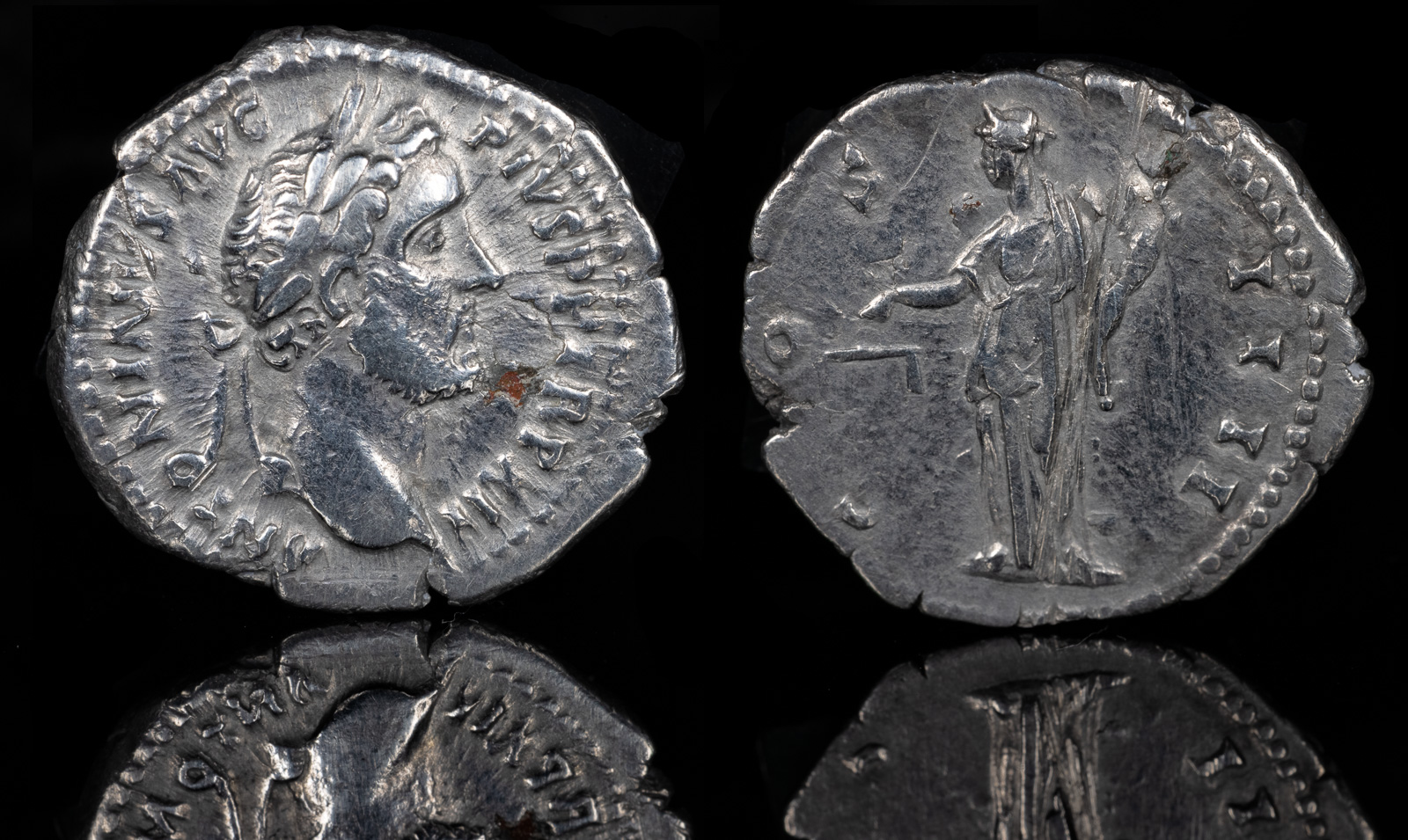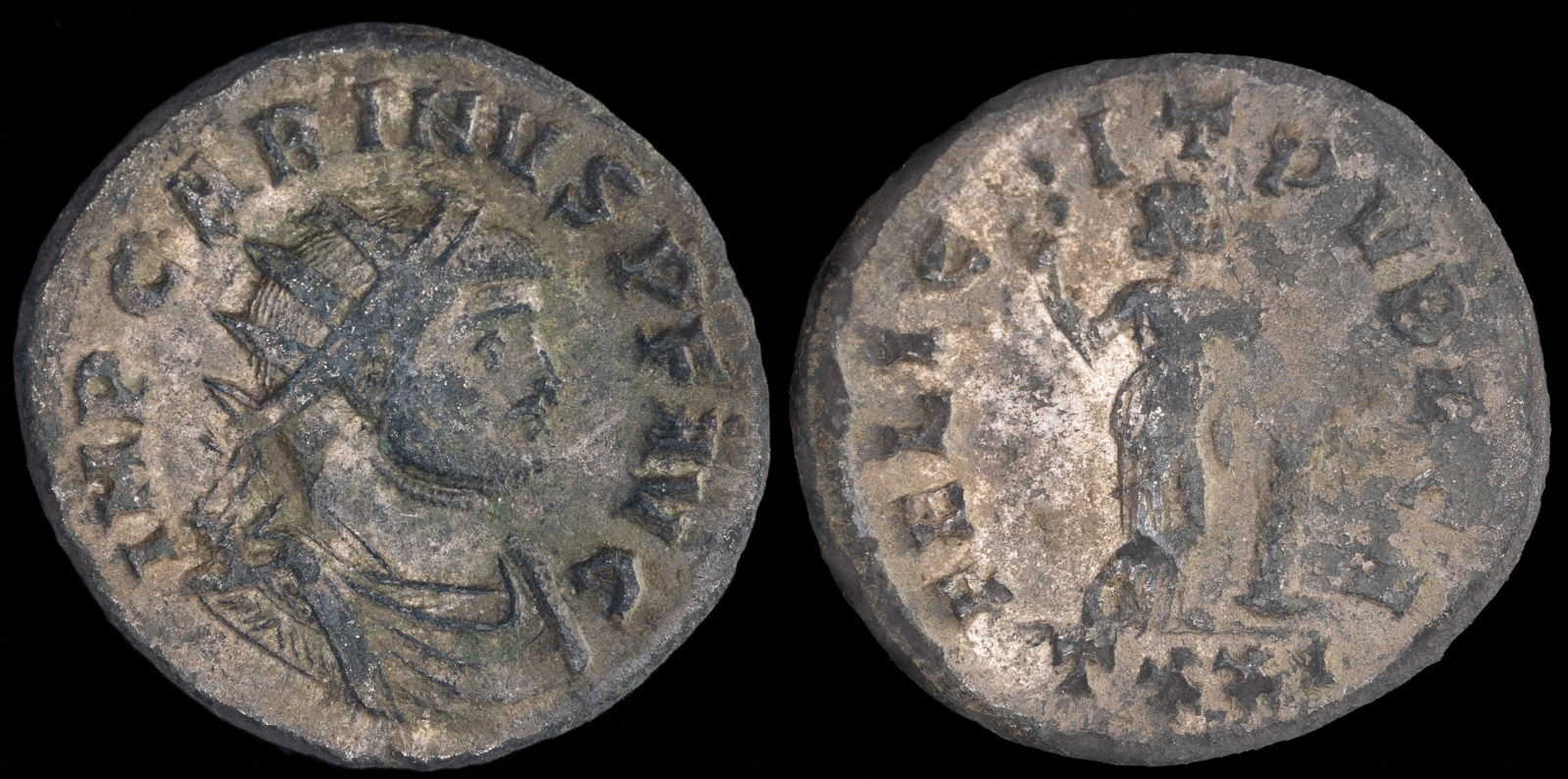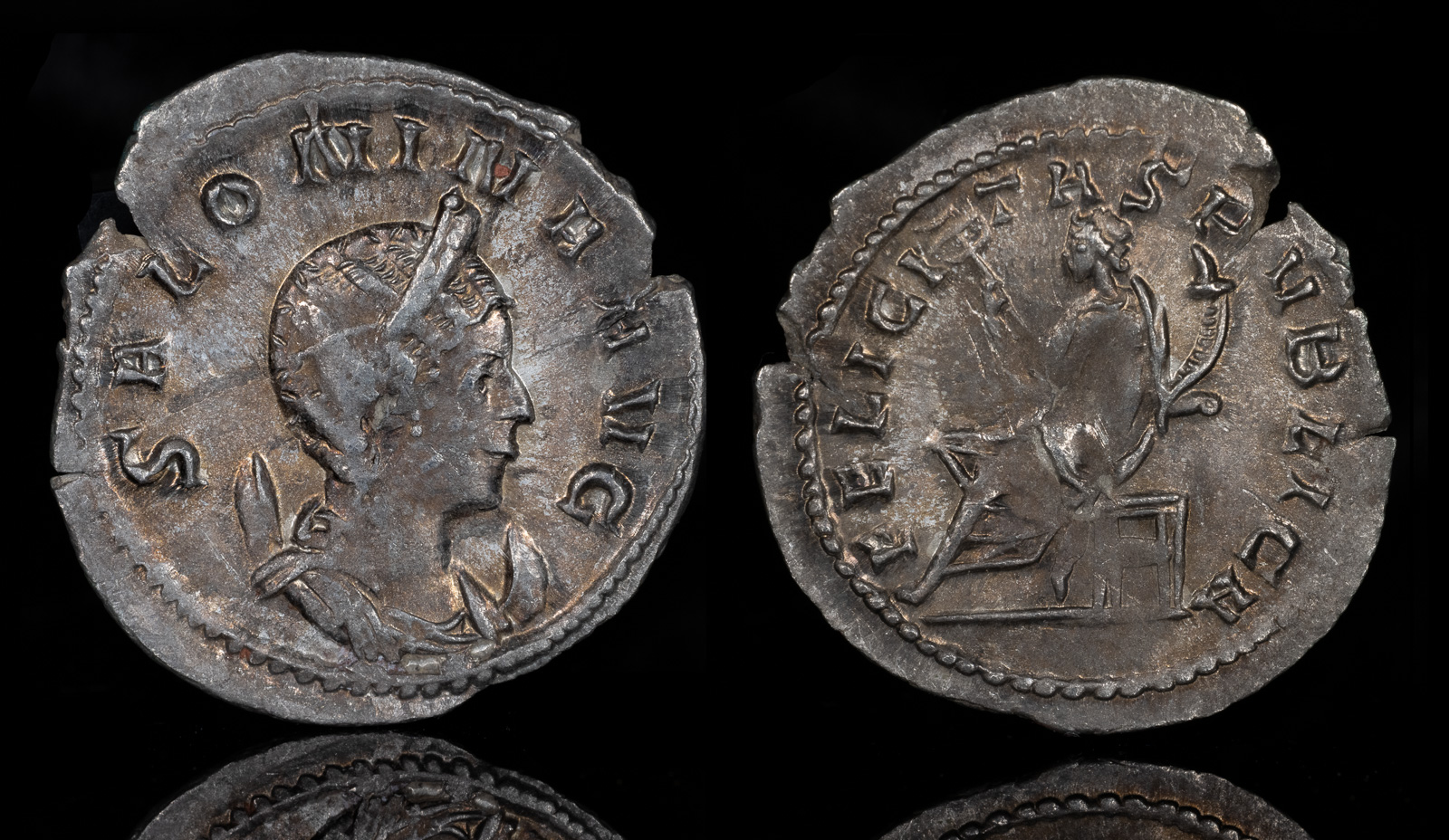Felicitas
View All Tags
In Roman religion, Felicitas was often depicted as a young, cheerful woman holding a cornucopia, symbolizing abundance and wealth, or sometimes as holding a caduceus, representing peace and prosperity. Her imagery conveyed the idea that she was a bringer of good fortune, capable of ensuring success and happiness in various aspects of life. Felicitas was frequently invoked by emperors, generals, and public officials in times of important decisions or actions, hoping to gain her favor for prosperous outcomes. Coins minted under different emperors often featured her image to symbolize the prosperity and well-being of the empire under their rule.
Felicitas was closely associated with military success and victory, particularly as it related to Roman generals and emperors. Roman coins, in particular, frequently depicted Felicitas in scenes of triumph and victory, underscoring the idea that military fortune and victory were divine gifts from the gods, including Felicitas. She was often shown alongside symbols of victory such as laurel wreaths or standing next to a prow of a ship (symbolizing naval success). Emperors would use her image to assert that their rule brought happiness and success to the empire, with Felicitas acting as a divine patroness of their reigns.
Felicitas also had a prominent role in the private lives of Romans, particularly in matters related to marriage, family, and fertility. She was invoked during weddings and births, as people believed that she could ensure prosperity and happiness for newlyweds or for families looking to expand. Additionally, Felicitas was often seen as a goddess who granted fertility to the land and people, ensuring that crops would grow and that the Roman people would be able to thrive. In this sense, she was a goddess of both personal happiness and state prosperity, bridging the private and public spheres.
Felicitas was also a symbol of security and good governance, which was essential for the stability of the Roman Empire. During the reigns of certain emperors, Felicitas’ imagery appeared on coins to highlight the peaceful prosperity that the emperor’s reign brought to the empire. In this way, the goddess was a crucial part of the Roman effort to promote a sense of well-being and order, tying divine favor directly to the leadership of the emperor and the successful functioning of the state.

Antoninus Pius
Rome 138-161 CE
AR Denarius 20mm, 3,12g
ANTONINVS AVG PIVS P P TR P XIIII, laureate head right /
COS IIII, Felicitas standing facing, head left, with grounded caduceus in right hand and cornucopia in left
RIC 193

Carinus
Ticinum mint 238 CE
AE Antoninianus 3.34g, 21.5mm
Obv: IMP CARINVS P F AVG, radiate, draped and cuirassed bust right
Rev: FELICIT PVBLICA, Felicitas standing facing, legs crossed, head left, holding caduceus and resting left elbow on column, TXXI in exergue.
RIC 295; Pink VI/2, pg. 29

Salonina (wife of Gallienus)
Colonia Agrippinensis, circa 257-258 CE
AR Antoninianus 1.97g, 23mm, 12h
SALONINA AVG, diademed and draped bust to right, set on crescent /
FELICITAS PVBLICA, Felicitas seated to left, holding caduceus and cornucopiae.
RIC V.1 6 (joint reign); MIR 903c; RSC 50
Ex Fritz Rudolf Künker 2008